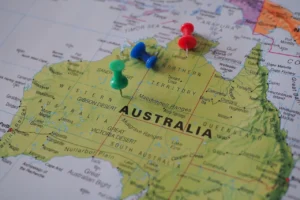
The Arrest of Barry Young
Statistician and whistleblower Barry Young, also known as “Winston Smith,” was arrested by New Zealand authorities for exposing a concerning database on COVID-19 vaccine deaths. His charge was “dishonestly accessing vaccination data,” but the underlying reason appears to be his revelation of alarming connections between vaccine batches and mortality rates. Young, a Ministry of Health employee, felt compelled to act upon discovering disturbing trends in the data. His arrest has sparked a debate on the legitimacy of the data and the government’s response to his actions. Read more from Vigilant News.
BREAKING:
M.O.A.R (Mother Of All Revelations)The irrefutable data on New Zealand's excess deaths from the Covid jabs. pic.twitter.com/iRQSgShpyn
— New Zealand Loyal (@NZLoyal) November 29, 2023
Global Reaction and Government Censorship
The New Zealand government’s reaction to Young’s disclosure, which quickly went viral, was to limit media coverage and claim injunctions against sharing the data. Young’s court appearance was met with support from the public, but he was initially denied bail. The government’s charges against him for accessing data for “dishonest purposes” have been met with skepticism, as Young argues he intended to expose a public health issue. This situation has raised concerns about government transparency and the suppression of potentially life-saving information. Read more from The Expose.
The Data Leak and Its Implications
The leaked data, which the New Zealand government has neither confirmed nor denied, suggests significant deaths following COVID-19 vaccination. The government’s frantic efforts to censor this information and the arrest of Young for allegedly spreading misinformation about COVID-19 have raised serious questions about freedom of expression and the right to know. The situation in New Zealand is a stark reminder of whistleblowers’ challenges and the lengths governments may go to control information. Read more from Revolver News.
The Role of Whistleblowers in Public Health
Barry Young’s case highlights the critical role of whistleblowers in bringing transparency to public health issues. Despite the risks and the backlash from authorities, whistleblowers like Young play a vital role in informing the public about potential health risks. Their courage in facing governmental and institutional pressures is essential in holding these entities accountable and safeguarding public health.
Conclusion
The arrest and treatment of Barry Young in New Zealand is a concerning example of how governments can react to whistleblowers who expose uncomfortable truths. It raises critical questions about the balance between national security, public health, and the right to freedom of speech. As this story continues to unfold, it serves as a reminder of the importance of transparency and accountability in government, especially in matters that directly impact public health and safety.

Carl Riedel is an experienced writer focused on using Open Source Intelligence (OSINT) to produce insightful articles. Passionate about free speech, he leverages OSINT to delve into public data, crafting stories that illuminate underreported issues, enriching public discourse with perspectives often overlooked by mainstream media.






